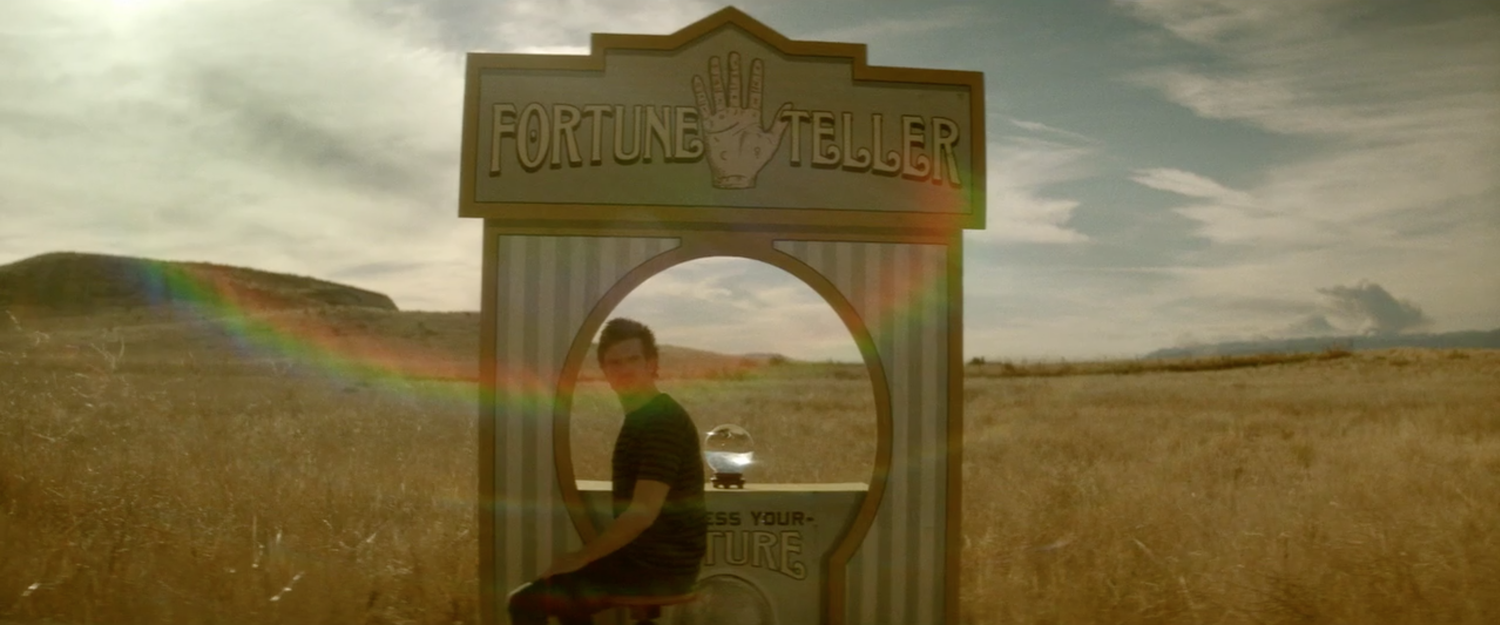
News
Summers Will Not Finish Semester of Teaching as Harvard Investigates Epstein Ties

News
Harvard College Students Report Favoring Divestment from Israel in HUA Survey

News
‘He Should Resign’: Harvard Undergrads Take Hard Line Against Summers Over Epstein Scandal

News
Harvard To Launch New Investigation Into Epstein’s Ties to Summers, Other University Affiliates

News
Harvard Students To Vote on Divestment From Israel in Inaugural HUA Election Survey
Is ‘Legion’ Losing its Edge?
Season 2, Episode 2
It’s too early into the second season to tell, but “Legion” might be losing its edge: the former surreal, abstract quality that kept its previous season afloat. As my co-reviewer mentioned in his take on Season Two’s premiere, “Chapter 9,” showrunner Noah Hawley said to Salon: “If the first year was about an individual who either is or isn't insane, what if the second year is more about a sane man in an insane world?”
My co-reviewer called this change a “mistake.” But the shift is inevitable, even if the dynamic is so much less interesting. Unreliable narrators or protagonists aren’t rare in storytelling, but it’s a trope that’s often reused because it works. People return to reality-subversion for that same adrenaline-pumping feeling you get from horror movies. Except in “Legion”’s case, the real horror in Season One was our hero, David (Dan Stevens), all along.
In Season Two, David’s no horror anymore (at least, not yet). But if “Chapter 10” is any indication, the show is struggling to find the same level of emotional complexity that made “Legion” truly bizarre and earth-shattering in its first season. Thus far in Season Two, the show has been relying on special effects to keep things aesthetically and superficially warped. In this episode, David jumps through time to find future-Syd (Rachel Keller) warning him of a danger greater than the Shadow King, colludes with Oliver (Jemaine Clement) and Lenny’s (Aubrey Plaza) semi-possessed beings, and finally confronts Amahl Farouk (Navid Negahban), the Shadow King, on the astral plane. Most of the tension revolves around David’s own worry about being the good guy.
But we already know that in this present moment, David is the good guy, and that’s where “Chapter 10” loses its sharpness. In the episode, David helps the Shadow King enter Division Three’s safe haven by creating a diversion, trusting in the word of future-Syd and Farouk. And of course, Farouk cannot be trusted. Oliver and Lenny take down several men, turning some into ash, one into a pig, and the other into a fish. After the tragedy, David is horrified, bending down to touch the remains and re-envision the murders. But it’s a scene that feels so artificially sympathetic and, quite frankly, a bit overused. The inner turmoil that David feels is mitigated by the fact that we know that he has good intentions and in no way could have prevented that situation besides completely ignoring future-Syd’s warning.
As a default then, the tension would have manifested in David potentially endangering his relationship with present-day Syd, but even that isn’t the case. David explains to Syd about his predicament, to which she responds “Okay. If I said that you should do it, then you should do it.” And just like that, another potential point of contention is resolved. It’s almost too simple, too neat, and too weak to really sustain interest beyond vague allusions to whatever is coming next for them.
Anticipation is only so effective without robust emotional dimensions to back it up. The season could pull a twist and reveal that David was the danger to which future-Syd was alluding all along, but at this point that seems hackneyed, a trope that Season One already tried—and succeeded—in doing.
It’s a good thing then, that “Legion” is funny, because its self-aware references to TV canons still keep the show a step above the rest. When David and Farouk battle on the astral plane, they envision themselves wrestling in a single spotlight, wearing low-hanging singlets. “Ah, le sport. Physical. Very physical,” Farouk says. “What is the word? Uh...homoerotic.”
“Shut up,” David responds, and the two proceed to fight. The fight ends with Farouk releasing the two from their psychic showdown. “I don’t need you to trust me, but you will respect me,” he says. Farouk—something of an all-powerful psychic mutant—shows more interesting dimensions than David ever does in Season Two: What does it mean to be struggling for control and greatness, especially after you’ve lost your physical body? What does it mean to have to live as a parasite? And will he continue to do so, or will he break Lenny out of her purgatorial state? “You got what you wanted out of me, man. Right?” Lenny begs from Farouk. “Your friendly neighborhood junkie. You popped me like a tick, stole my face.” Even Kerry (Amber Midthunder) and Cary (Bill Irwin) have some sort of struggle that outshines David’s, as they try to figure out how to exist with their roles reversed, with the former uncomfortably trapped in the outside world and the latter uncomfortably trapped in Kerry’s body.
Somehow all of these side characters are more interesting than David and Syd, who are quite bland considering their watered-down and superficial responses to potentially earth-shattering events. Perhaps it’s still too early in the season to be calling it quits, but hopefully “Chapter 11” will bring back the quirky and bizzare “Legion” that we know and love.
Want to keep up with breaking news? Subscribe to our email newsletter.

